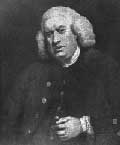"Process, not product" has been a slogan in the field of composition studies since the 1970s, a rallying cry for those who advocate an interactive approach to teaching and who prefer to emphasize learning as an activity (something that is done) rather than thinking about education as a commodity (something one must have). How this orientation to process has affected the teaching of writing will not be rehearsed here; instead, I want to initiate a discussion about the relationship or balance in undergraduate literature classrooms between "process" and "product"--perhaps analogous, in this context, to "skills" and "content"--and about how assignments might be conceived to improve this balance. If my central question, then, is, "How should we craft assignments to best serve our students?" there is a larger concern that lies behind it: "What are we supposed to be teaching our students, anyway?" There are the fundamental skills of critical thinking, reading, and writing--the close attention to and analysis of texts that are, I think we can agree, at the core of English pedagogy; but then there are also the interaction with and acquisition of particular bodies of knowledge (about texts, authors, literary terms and traditions) which may or may not be ends in themselves.
Exams and papers are ostensibly opportunities for students to practice and refine these valuable skills as well as to engage with and synthesize course material; that is, we intend for these assignments to be as much attuned to process as to product. But intentions do not outcomes make. First of all, it is a challenge to come up with an assignment that does all the right kinds of prompting. Second of all, it is possible for students to complete even the best-formulated assignments without profiting from the occasions they offer (we've all encountered the formulaic five-paragraph essay or the exam answer that responds to the letter, but not the spirit, of the question). While it is difficult to ensure that assignments will succeed on any level, that they will be anything other than a hoop the students must jump through to get credit for the class, I want to suggest that some assignments are more equal than others. What I have in mind are projects--particularly dictionaries, anthologies, and chronologies or time-lines--that are not only alternatives to the traditional close-reading papers that most literature courses assign to undergraduates, but are also especially well-suited to the use of hypertext. These types of projects ask students to rethink and revise the conventional bundling of knowledge in the humanities (what gets bundled, how is it bundled?), and encourage them to at least question the linear thinking frequently presupposed by these forms.
Related terms:
 Back to the Launch Page
Back to the Launch Page
 Back to the list of keywords
Back to the list of keywords